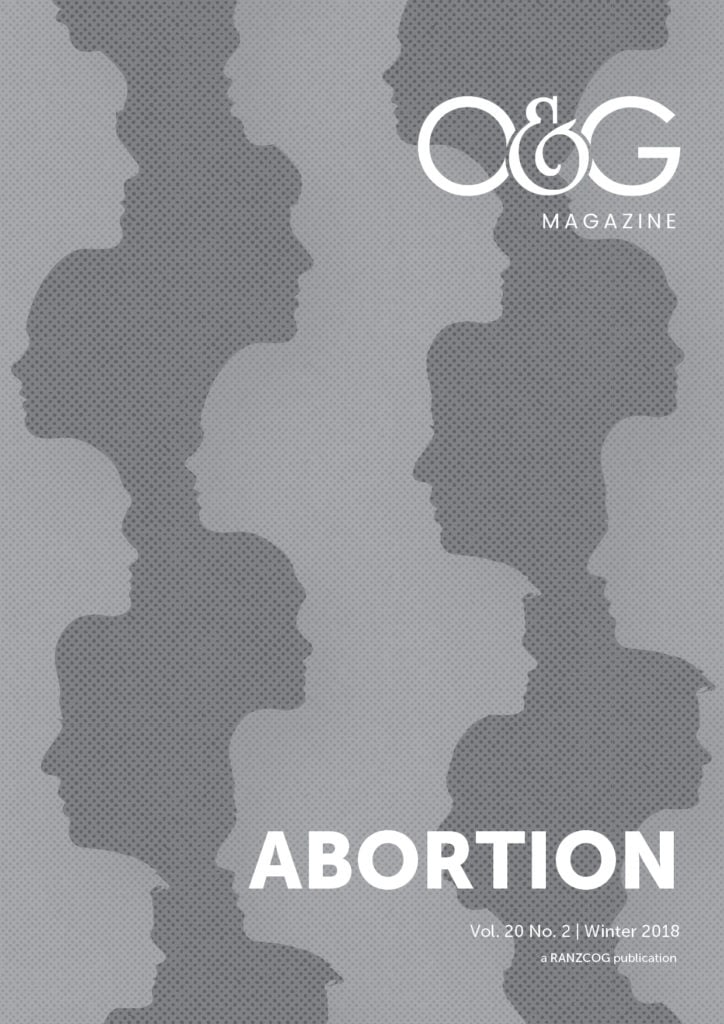Your regular legal update to keep you informed on current medicolegal issues in the practice of obstetrics and gynaecology.
General Medical Council statement on Dr Bawa Garba
On 28 March 2018, Lord Justice Simon granted Dr Bawa Garba permission to appeal the decision by the High Court that led to her erasure from the medical register. Dr Bawa Garba was convicted of gross negligence manslaughter for her role in the death of six-year-old Jack Adcock. The Court acknowledged there were system failures and that Dr Bawa Garba was unsupported by seniors during a busy shift, after her recent return from parental leave. However, the Court found that the errors she made, ultimately leading to Jack’s death, were so negligent, despite contributing factors, that it amounted to manslaughter.
The subsequent tribunal case, which was asked to consider whether Dr Bawa Garba’s fitness to practice was impaired and whether sanctions were appropriate, found that a 12-month suspension order was indicated. The General Medical Council (GMC) appealed the decision, arguing that a criminal conviction for gross negligence is incompatible with being a doctor. They argued that more serious sanctions, such as erasure, are required in order to maintain public confidence in the profession. They also argued that the tribunal revisited findings of the Criminal Court, particularly with respect to contributing factors, and that this was unlawful. The High Court agreed with the GMC and this led to Dr Bawa Garba being struck off the register.
Following widespread outrage from the medical community, including a vote of no confidence in the GMC at a GP conference, a review of the role of gross negligence manslaughter, and a successful fundraising campaign to support Dr Bawa Garba’s case, an application for a second appeal was launched. The application met the test, according to Lord Justice Simon, which requires that the appeal not only has a ‘real prospect of success’, but that it raises an important point of principle or practice, or involves a compelling reason for the Court of Appeal to hear it.
The appeal is listed for a full hearing by three judges. The issues to be addressed are:
- Whether the GMC and Divisional Court are correct that it is unlawful for the Medical Practitioners Tribunal (MTC) to revisit the findings of the Criminal Court
- Whether a doctor convicted of gross negligence requires serious action be taken to maintain public confidence in the profession and its standards
- Whether a conviction of gross negligence manslaughter is fundamentally incompatible with being a doctor
The British Medical Association welcomed the decision and will apply to intervene in the appeal in order to assist the Court. The appeal is expected to occur before the end of July 2018.
Senate report on vaginal mesh
The Australian Senate inquiry report on transvaginal mesh implants was released in March 2018. The purpose of the inquiry was to: identify the number of Australian women adversely affected by transvaginal mesh surgery; consider the information and support available to women undergoing transvaginal mesh surgery; consider the information provided to doctors and surgeons who recommend and undertake transvaginal mesh surgery; and examine the role of the Therapeutic Goods Association (TGA) in approving and monitoring mesh devices in Australia.
One of the disturbing aspects of the report are the accusations by women against some medical professionals, saying they had not consented to the insertion of mesh, from which they now suffer ongoing complications. In their response, the committee of inquiry encouraged women not to accept ‘unprofessionalism’ from doctors and to consider reporting their concerns. RANZCOG also strongly encourages women with complaints about their care to contact relevant regulators in their jurisdictions.
The report also considered the role of the TGA and its processes for approval and monitoring of medical devices. While the committee of inquiry accepted that assessment and approval of medical devices is a continually evolving process, it found that criticisms of the delay in regulatory response towards emerging evidence were justified.
The report culminated in 13 recommendations calling for greater oversight and improved systems, in order to prevent not only the extent of harm caused by vaginal mesh from happening in future, but also harm caused by delays in recognition and action.
The committee concluded by emphasising, to the women who came forward with their stories, that they have been heard and thanking them for their courage and persistence. It is clear that too many women were left feeling unheard and uncared for. It has resulted in a loss of trust in some members of the medical profession that must be rebuilt. Implementation of these recommendations ensures greater oversight of the device-manufacturing industry and individual practice. Measures such as these can help to rebuild women’s faith in the care that they receive. As a specialty, we should continue to work towards listening, communicating effectively and providing women with the best possible experience of care.
Female genital mutilation in Malaysia
The practice of female genital mutilation/cutting (FGM/C) in Malaysia has drawn international criticism following constructive dialogue at the 69th session of the Convention on the Elimination of All Forms of Discrimination Against Women (CEDAW), in February 2018. Unlike many other countries, including some Muslim countries, the practice is not illegal in Malaysia. When Malaysia was questioned about it’s failure to criminalise FGM/C, a delegate disagreed with comments made by Ismat Jahan from Bangladesh that the practice was not Islamic, stating that FGM/C is part of Islamic teaching and should be observed by Malaysian Muslims. The Malaysian Ministry of Health stated that it was a harmless procedure. Malaysia ratified CEDAW in 1995.
The practice of FGM/C remains prevalent within communities in Africa and some areas of India, Asia and the Middle East. It is thought that 100–140 million women worldwide have been subjected to FGM/C. The practice can vary significantly from culture to culture and there are four basic categories: partial or total clitoridectomy (Type I); excision of the labia minora and/or majora (Type II); infibulation that involves narrowing of the vaginal opening by cutting and sewing up the labia minora to form a thick scar tissue over the genital area, with a small opening for urine and menstrual bleeding (Type III); and all other ‘harmful procedures’ to the genital area, including piercing and cauterisation (Type IV). The most common forms of FGM/C practised in Malaysia are types I and IV.
In Australia, each state has enacted legislation (for example, Crimes Act 1958 [Vic] s32) specifically targeting FGM/C and making it an offence to perform the practice on a female under 18 years of age. Legislation excludes genuine medical and sexual reassignment procedures performed by a medical professional, including any considerations other than medical welfare and the relief of physical symptoms. In addition, it is an offence in all states to remove a child from Australia with the intention to procure a female circumcision elsewhere. Finally, consent is unanimously no defence, whether by the subject, parent or guardian. The language of the legislation places onus on those around the subject of the procedure to prevent the offence from occurring. The New South Wales Act makes it an offence to aid, abet, counsel and procure a procedure for another person. While the Victorian Act is not as clear, the legislation aims to oblige others to save the individual from succumbing to external pressures.
In Malaysia, a 2016 survey found that only four per cent of Muslim women had not been circumcised, while an astonishing 88 per cent of Muslim women surveyed reported having been circumcised when they were young (eight per cent of respondents were unsure if they had been circumcised).1 The practice has recently been medicalised and is now performed by doctors in clinics and hospitals. The 2009 fatwa, which astonishingly, shifted the practice away from being ‘recommended practice’ to ‘obligatory practice’ created a dilemma for doctors. This marked a dramatic shift away from the fatwa convened by Dar al-Ifta al-Misriyyah, a high-ranking Egyptian Muslim institution, in 2006, that found the custom of FGM/C was deplorable and had no justification in Islam. Malaysia supported a move to medicalise the practice with the implementation of ‘harm minimisation strategies’ that include better practices and hygiene, and fewer long-term complications as less tissue is removed. ‘Harm minimisation strategies’ do not address the deeply entrenched gender inequalities that lead to FGM/C including:
- The need for social acceptance to ensure girls have marriage prospects and economic and social security
- The belief that the removal of all ‘semblance of male parts’ is considered ‘beautiful and feminine’
- The promotion of sexual restraint to protect the virginity of girls before marriage and attempt to ensure fidelity in marriage
Malaysia is in conflict with its international obligations and continues to use religious justifications for cultural practices that are not without harm regardless of ‘harm minimisation strategies’.







Leave a Reply